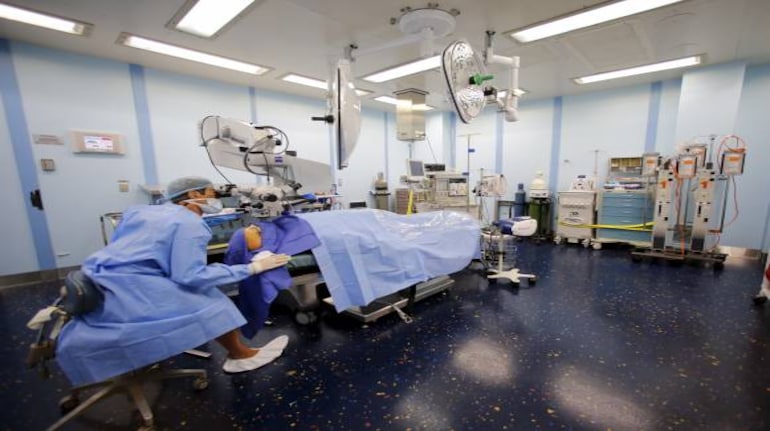



Bengaluru-based Sagar Hospitals is scrambling to marshal its resources ever since India's tech capital started seeing stream of COVID-19 positive cases.
With healthcare workers like doctors, nurses and allied staff at high risk of contracting the COVID-19 infection, Sagar has divided its doctors and support staff into small batches. Each batch is assigned a particular day of duty. This is to prevent each batch from meet other.
This was done to ensure that the hospital functions serving existing patients and attending emergency cases, while ensuring that its staff are protected.
Track this blog for latest updates on coronavirus outbreak
"It is our responsibility to see that we maintain health our people, so that we continue our operations," said Dr Jagdish Chandra, Vice President, Medical Services at Sagar Hospitals.
Chandra said they have kept on hold outpatient department (OPD) services and stopped elective surgeries - two major revenue stream for hospitals.
Chandra says despite taking massive hit on operations and revenues, they have to pay wages to staff, rents, utility bills and interest on working capital.
If the current situation prevails beyond a month, Sagar Hospitals may even struggle to pay salaries to its workforce and may have to shut.
Sagar Hospitals has 200 doctors and more than double that number of allied staff on rolls.
The COVID-19 came like a bolt from the blue for private hospitals.
Fuelled by PE funds, many private hospital chains expanded aggressively in the last few years. But most of them are now struggling to stay afloat.
Even India's largest healthcare chains like Apollo Hospitals has warned about the "total crash of the system" if government doesn't step in .
"Hospital industry is going through trying times. There has been a deep fall in OPD volumes and planned surgeries. We might see a total crash of the system itself. We need basic support (from the government) on power, electricity, rentals and cost of capital," Preetha Reddy said.
Private hospitals have urged the government to provide six to nine months’ moratorium on all working capital, principal, interest payments on loans and overdrafts, bringing in liquidity and allowing for business continuity.
In a representation to the government - FICCI, AHPI, ASSOCHAM, Indian Chamber of Commerce, PhD Chamber of Commerce, PHANA Karnataka and NATHEALTH ahev sought deferment of advance tax payments at the Central Government level. A waiver of GST on input costs and services for 2 quarters.
The also asked at least 50 percent rebate on the current commercial rates of power currently being paid by hospitals, diagnostics centers, pathology labs and other healthcare service providers to ensure sustenance of business
"Subsidy of 25 percent of salary for healthcare staff for the next 3 months and reimbursement of employer’s contributions towards ESIC and PF and comprehensive medical and life insurance benefits for all public and private sector frontline workers, ensuring continuous availability of personal protection equipment (PPE) supplies," the industries bodies said.
Discover the latest Business News, Sensex, and Nifty updates. Obtain Personal Finance insights, tax queries, and expert opinions on Moneycontrol or download the Moneycontrol App to stay updated!
Find the best of Al News in one place, specially curated for you every weekend.
Stay on top of the latest tech trends and biggest startup news.